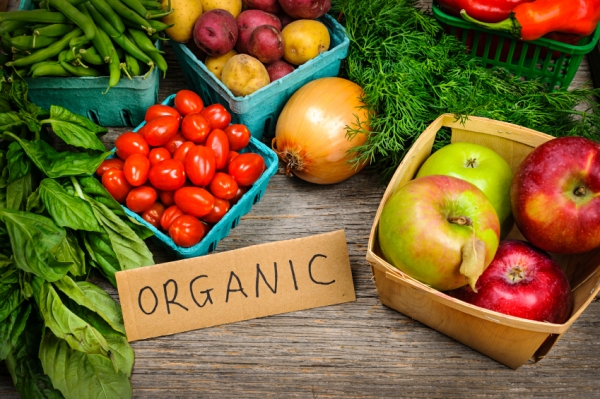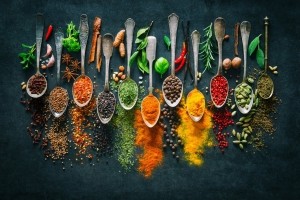A new report from Ecovia Intelligence suggests that organic sales have seen a ‘hefty sales increase’ globally.
Online retailers are reporting the highest sales growth. In the US, Whole Foods Market has started limiting the number of its online grocery customers because of unprecedented demand. Meanwhile in the UK, Abel & Cole reported a 25% increase in sales orders and Riverford, an organic farm and vegetable box delivery company, is reporting a demand surge. Nourish Organic, an Indian online retailer, experienced a 30% sales rise last month.
Physical retailers are also benefiting from the emergency measures introduced by national governments. Organic and natural specialists have largely remained open and are attracting more shoppers and growing the spend of existing customers. In France, Ecovia reports, some organic food shops are reporting growth in excess of 40%.
Finn Cottle, trade consultant for Soil Association Certification, told FoodNavigator that organic sales have been buoyant throughout the COVID-19 lockdown period.
“In spite of the current crisis the [UK] organic market is set to surpass the £2.5bn sales mark by the end of the year, achieving more than 50% growth in a decade. March and April saw an increase in organic sales with many Soil Association Certification licenses working round the clock to meet this demand, including processor licenses supplying into supermarkets, who experienced a 25.6% increase in sales.”
Indeed, organic products performed better than conventional alternatives and the organic sector reported higher growth than overall retail in March and April, Cottle revealed. “Organic product sales outperformed the growth seen in the non-organic sector in the same time period, with significant increases in purchasing of grocery items such as tea and coffee and home-baking, alongside organic wine, beef and butters and fats.”
What is driving interest in organic?
COVID-19 is raising consumer awareness of the relationship between nutrition and health. This has resulted in a surge in interest in products that benefit from a ‘health halo’, including functional foods and fruit and vegetables.

According to data from AI-powered food intelligence startup Tastewise, which tracks online consumer engagement, mentions of ‘immunity’ in the context of food searches rose 27% between February 2019 and March 2020. Kombucha, pickled vegetables and bitter melon are examples of grocery items that have specifically seen an uptick in interest since the onset of the virus, according to Tastewise.
Organic foods are viewed as being healthier and safer than conventional alternatives, Amarjit Sahota founder and CEO of Ecovia Intelligence told FoodNavigator.
“Whenever there is a food scare or health scare (like SARS), consumers look at disease prevention and improving nutrition. Organic foods get a sales boost as they are perceived to be healthier and safer than conventional foods.
“Organic foods avoid synthetic pesticides and agro-chemicals and are therefore considered to have less harmful chemicals than conventional foods. Various studies also show that organic foods have more nutrients than conventional foods. Consumers therefore buy organic foods as they are considered safer and more nutritious than conventional foods.”
The Soil Association’s Cottle also pointed to the rising demand for locally produced products in response to concerns about food security and as consumers look to support local businesses. “The integrity of organic during this time of great uncertainty is likely to be more important to many too – as well as the transparency of sourcing – including buying British, where possible,”she noted.
It would seem that shoppers are willing to pay a price premium for foods that deliver in these touch-stone issues.
“In the current coronavirus crisis, consumers are looking to boost their personal immunity. They are spending more on organic foods, plant-based foods, nutritional supplements, etc. The price premium is not so important when consumers are looking to improve their overall health and look at disease prevention,”Sahota said.
Demand boost leads to supply challenge
As organic manufacturers react to the sudden increase in demand, supply issues are becoming evident, Ecovia suggested.
In particular, COVID-19 has placed ‘international supply networks’ for organic products under pressure. According to the research group, ‘many’ of the raw materials used by European and North American organic food companies are produced in Asia, Latin America and Africa.

National lockdowns are disrupting supply chains. For instance, India is a major source of organic tea, herbs, spices and related ingredients. Emergency measures introduced in March have halted food processing and exports.
There is also a time lag in the time it takes to increase organic production, Sahota said.
“The challenge is to maintain supply when demand increases. The organic food industry is prone to supply-demand swings. Since there is a conversion period (typically 18 months) for organic farming practices, it is not easy to increase supply of organic products. It is therefore common to see demand surges which lead to supply shortages. When supply eventually increases, demand can sometimes taper off. This has been a major issue for organic meat and dairy products which have experienced under supply, overproduction and then under supply.”
Will demand hold up in post-COVID recession?
While COVID-19 might be putting health and nutrition front and centre, could the expected economic shock – which is only just starting to be felt – dampen consumer enthusiasm for premium products?
Cottle suggests that many of the behavioral changes consumers have adopted during the COVID-19 crisis are likely to stick. “Organic products deliver on many of the benefits that shoppers may be on the lookout for ‘post COVID’ – natural, healthy and tasty food and drink that’s been sourced and farmed with care.
“Organic has always enjoyed much popularity through online shopping and box schemes too – and during this crisis, the uptake has been even higher. We expect to see this habit of buying organic for home delivery to continue for many shoppers post Covid-19.”
Ecovia Intelligence is also optimistic about the future of the organic sector post-COVID. The research group forecasts that demand will ‘remain strong’ after consumer fears subside.
Previous health scares have resulted in a spike in demand for organic, followed by sustained sales, Ecovia noted. For instance, the BSE crisis in 2000 escalated demand for organic across Europe – and sales remained buoyant in subsequent years. Likewise, organic demand increased in Asia in 2004 in response to SARS, while the 2008 melamine scandal in China increased demand for organic baby food.

Sahota elaborated: “Health crises and food scares have a long-term impact on consumer demand. Initially, there is a sales spike as consumers fear for food safety and their personal health drive product purchases. However, demand usually remains buoyant post-crisis levels. We have seen this happen for various food scandals and health scares. For instance, the melamine scandal in China led to a surge in demand for organic baby food and dairy products in 2008. The scandal led to many dairy firms to invest in organic production practices. China now has the largest market for organic dairy products in Asia; it also has the largest market for organic infant formula in the world.
“A similar development happened in Europe during the BSE crisis two decades ago. High consumer demand for organic meat products led to considerable investment in organic meat production. Within a few years, Europe had the largest market for organic meat products in the world. Demand for organic meats sustained after the BSE crisis.”
Nevertheless, the scale of the economic depression – already dubbed The Great Lockdown – is likely to have an impact on spending power.
“There are two contrary trends happening. During an economic downturn, consumers become price sensitive and ‘trade down’ or look for more value when shopping. However, during food and health crises they become more quality conscious and are willing to pay more for healthy and nutritious foods,”Sahota conceded.
It remains to be seen which of these two conflicting trends will have the greatest impact on future consumer attitudes to organic products.
.

